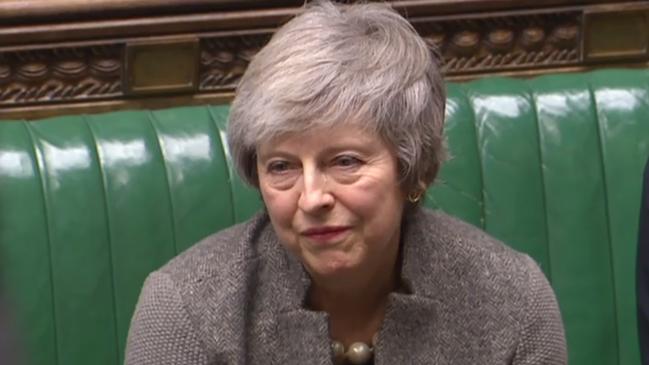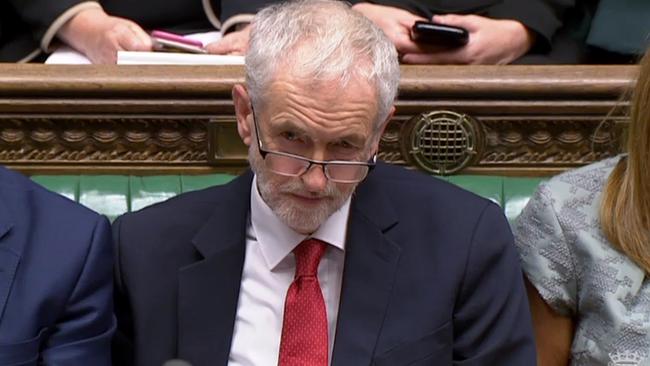Jeremy Corbyn tables no confidence vote in Theresa May
Labour leader Jeremy Corbyn has piled pressure on Theresa May to table her Brexit deal by moving a vote of no confidence in her.

A disdainful Theresa May walked out of the House of Commons overnight after Labour leader Jeremy Corbyn tabled a vote of no confidence in her.
While a censure motion against the Prime Minister is very different to no confidence in the government, the Labour move clearly failed to impress Mrs May.
The government is under no obligation to make time for the motion against her and it is non-binding in any case. Legal experts said Labour may have to wait until an opposition day in the parliament when it can be voted upon.
However behind the scenes, Labour is threatening to escalate the no confidence motion in Mrs May to a no confidence vote in the government if the Tories don’t allow time for the censure motion tomorrow.
The Labour stunt was designed to try and pressure Mrs May to table her broken Brexit deal before the Christmas break. Mrs May instead announced that the vote would taken place in the week beginning January 14, a delay derided across the House.
Mr Corbyn said: ”It’s very clear that it’s bad, unacceptable, that we should be waiting almost a month before we have a meaningful vote on the crucial issue facing the future of this country. The Prime Minister has obdurately refused to ensure a vote took place on the date she agreed, she refuses to allow a vote to take place this week and is now, I assume, thinking the vote will be on January 14 — almost a month away. This is unacceptable in any way whatsoever’’.

His motion was: “That this House has no confidence in the Prime Minister due to her failure to allow the House of Commons to have a meaningful vote straight away on the withdrawal agreement and framework for future relationships between the UK and European Union.”
Mrs May had earlier resisted strong pressure from within her own Conservative party to put her Brexit deal before parliament in the next few days, instead of announcing that the vote would take place in the middle of January. Conservative chair of the Treasury Committee Nicky Morgan publicly attacked Mrs May’s refusal to put the deal to a vote this week, saying ”business cannot understand why we are going on holiday for two weeks’’.
Another Conservative MP Jonathan Djanogly who was one of the few politicians to express support for Mrs May’s Brexit deal yet he warned her that the party was “haemorrhaging support’’ while business confidence and investment was also being battered.
“Let’s hold the vote and move on,’’ he said, also pushing to allow MPs an indicative vote.
Mrs May has rejected holding any indicative vote, and repeated that she would not allow any second referendum or revoke article 50.
She insisted that she was seeking further reassurances including political and legal encouragement, from the European Union on the contentious Irish backstop clause of the deal.
Without any trace of irony, Mrs May told the Commons: “This House is deeply uncomfortable about the backstop and we want to go further still in assurances and discussions with Donald Tusk and Jean Claude Junker and others. Further clarification is possible, so we are holding further discussions to get further legal assurances … there is only 14 weeks (until the Brexit deadline) and many MPs need to take a decision soon.’’
But most believe she is running down the clock and delaying the vote to January to try and pressure MPs into supporting her deal — or face having the country exit the EU without a deal.
The Green’s Caroline Lucas accused Mrs May of “turning faith-breaking into an art form’’.
Mrs May was quizzed by the Liberal Democrats about whether she was now taking advice from the former Prime Minister David Cameron, who initiated the Brexit referendum. Mrs May said Mr Cameron wasn’t giving her advice and they last spoke when the withdrawal agreement was finalised.



